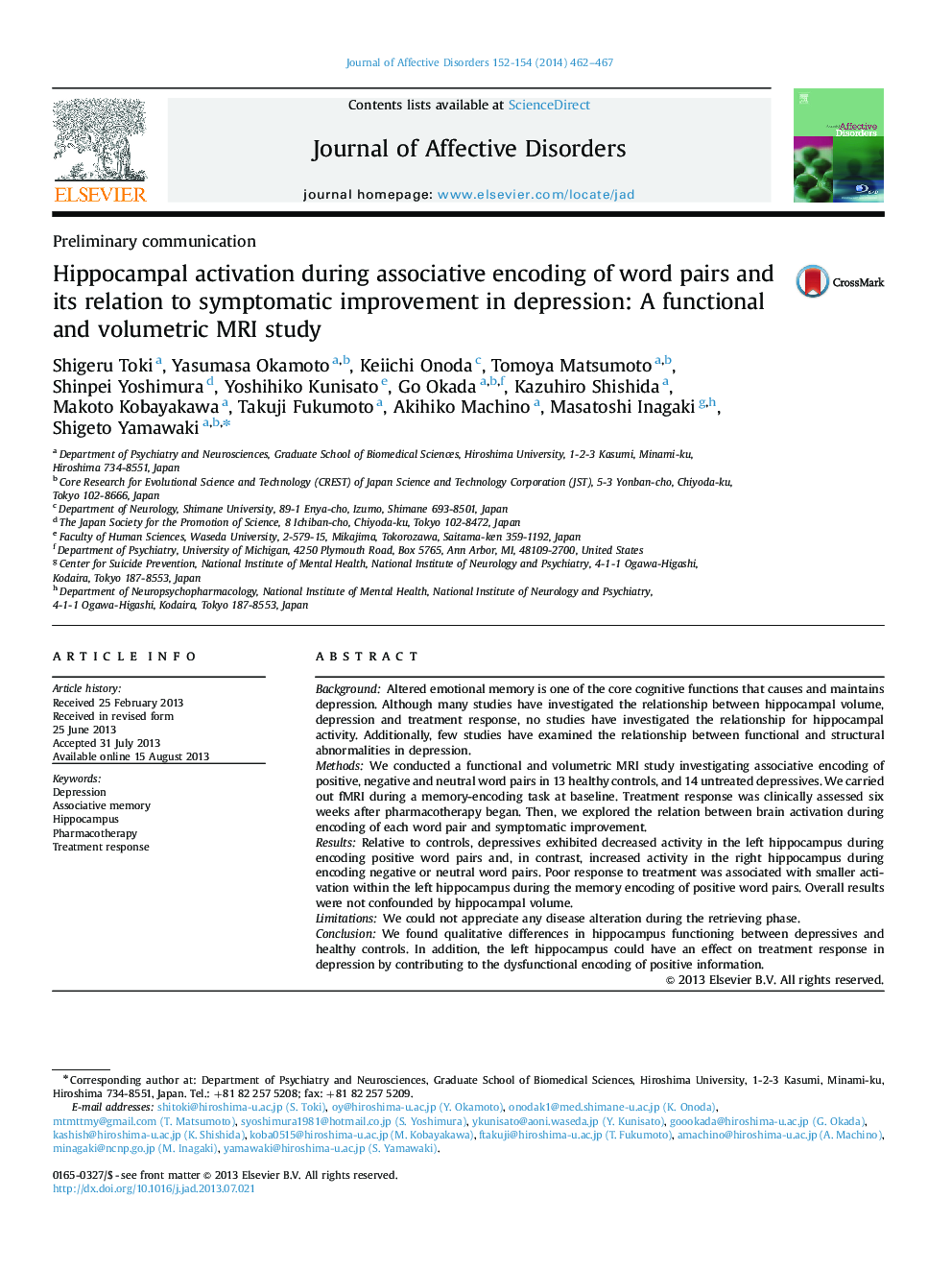| Article ID | Journal | Published Year | Pages | File Type |
|---|---|---|---|---|
| 6233236 | Journal of Affective Disorders | 2014 | 6 Pages |
BackgroundAltered emotional memory is one of the core cognitive functions that causes and maintains depression. Although many studies have investigated the relationship between hippocampal volume, depression and treatment response, no studies have investigated the relationship for hippocampal activity. Additionally, few studies have examined the relationship between functional and structural abnormalities in depression.MethodsWe conducted a functional and volumetric MRI study investigating associative encoding of positive, negative and neutral word pairs in 13 healthy controls, and 14 untreated depressives. We carried out fMRI during a memory-encoding task at baseline. Treatment response was clinically assessed six weeks after pharmacotherapy began. Then, we explored the relation between brain activation during encoding of each word pair and symptomatic improvement.ResultsRelative to controls, depressives exhibited decreased activity in the left hippocampus during encoding positive word pairs and, in contrast, increased activity in the right hippocampus during encoding negative or neutral word pairs. Poor response to treatment was associated with smaller activation within the left hippocampus during the memory encoding of positive word pairs. Overall results were not confounded by hippocampal volume.LimitationsWe could not appreciate any disease alteration during the retrieving phase.ConclusionWe found qualitative differences in hippocampus functioning between depressives and healthy controls. In addition, the left hippocampus could have an effect on treatment response in depression by contributing to the dysfunctional encoding of positive information.
